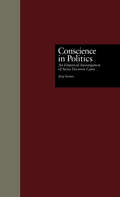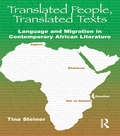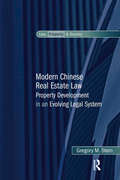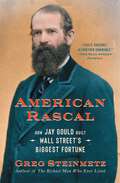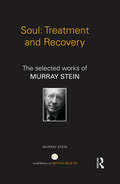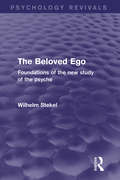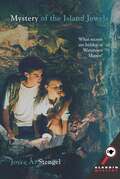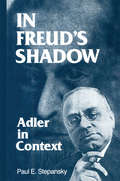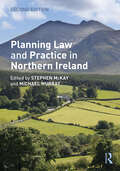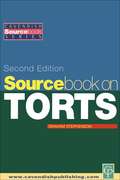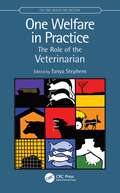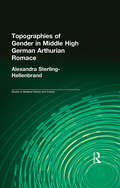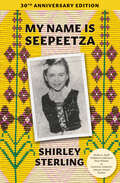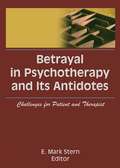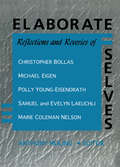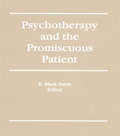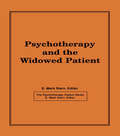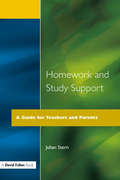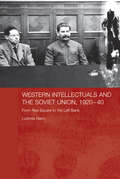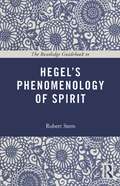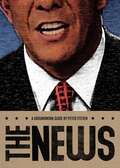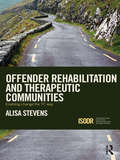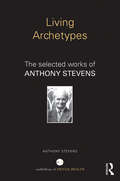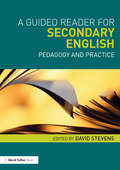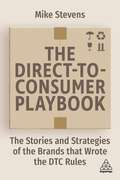Special Collections
Benetech’s Global Certified Accessible Titles
Description: Benetech’s GCA program is the first independent third-party EPUB certification to verify ebook accessibility. By creating content that is born accessible, publishers can meet the needs of all readers. Learn more: https://bornaccessible.benetech.org/
- Table View
- List View
Conscience in Politics
by Jurg SteinerFirst published in 1996. Routledge is an imprint of Taylor & Francis, an informa company.
Translated People,Translated Texts
by Tina SteinerTranslated People, Translated Texts examines contemporary migration narratives by four African writers who live in the diaspora and write in English: Leila Aboulela and Jamal Mahjoub from the Sudan, now living in Scotland and Spain respectively, and Abdulrazak Gurnah and Moyez G. Vassanji from Tanzania, now residing in the UK and Canada. Focusing on how language operates in relation to both culture and identity, Steiner foregrounds the complexities of migration as cultural translation. Cultural translation is a concept which locates itself in postcolonial literary theory as well as translation studies. The manipulation of English in such a way as to signify translated experience is crucial in this regard. The study focuses on a particular angle on cultural translation for each writer under discussion: translation of Islam and the strategic use of nostalgia in Leila Aboulela's texts; translation and the production of scholarly knowledge in Jamal Mahjoub's novels; translation and storytelling in Abdulrazak Gurnah's fiction; and translation between the individual and old and new communities in Vassanji's work. Translated People, Translated Texts makes a significant contribution to our understanding of migration as a common condition of the postcolonial world and offers a welcome insight into particular travellers and their unique translations.
Modern Chinese Real Estate Law
by Gregory M. SteinWith massive growth taking place in the real estate industry, how can China develop a free market and private ownership of land while still officially subscribing to Communist ideology? This study uses fieldwork interviews to establish how the Chinese real estate market operates in practice from both legal and business perspectives. It describes how the market functions, which laws are applicable and how they are applied, and how a nation can achieve dramatic economic growth so rapidly while its legal system is so unsettled. The book demonstrates how China is drawing on the world for ideas while retaining a domestic system that remains essentially Chinese, and how the recent revitalization of China's real estate market has confounded the predictions of many developments economists.
American Rascal
by Greg SteinmetzThe gripping biography of Jay Gould, the greatest 19th-century robber barons, whose brilliance, greed, and bare-knuckled tactics made him richer than Rockefeller and led Wall Street to institute its first financial reforms.Had Jay Gould put his name on a university or concert hall, he would undoubtedly have been a household name today. The son of a poor farmer whose early life was marked by tragedy, Gould saw money as the means to give his family a better life…even if, to do so, he had to pull a fast one on everyone else. After entering Wall Street at the age of twenty-four, he quickly became notorious when he paralyzed the economy and nearly toppled President Ulysses S. Grant in the Black Friday market collapse of 1869 in an attempt to corner the market on gold—an event that remains among the darkest days in Wall Street history. Through clever financial maneuvers, he gained control over one of every six miles of the country&’s rapidly expanding network for railroad tracks—coming close to creating the first truly transcontinental railroad and making himself one of the richest men in America. American Rascal shows Gould&’s complex, quirky character. He was at once praised for his brilliance by Rockefeller and Vanderbilt and condemned for forever destroying American business values by Mark Twain. He lived a colorful life, trading jokes with Thomas Edison, figuring Thomas Nast&’s best sketches, paying Boss Tweed&’s bail, and commuting to work in a 200-foot yacht. Gould thrived in an expanding, industrial economy in which authorities tolerated inside trading and stock price manipulation because they believed regulation would stifle progress. But by taking these practices to new levels, Gould showed how unbridled capitalism was, in fact, dangerous for the American economy. This eye-opening history explores Gould&’s audacious exploitation of economic freedom triggered the first public demands for financial reform—a call that still resonates today.
Soul
by Murray SteinMurray Stein is well-known as an insightful and pioneering author and academic. Soul: Treatment and Recovery presents a selection of papers and book chapters spanning his career from 1973 to 2012. The chapters included in this collection speak for Stein’s hope that individuals and humanity as a whole can evolve toward greater consciousness and awareness of meaning in daily life. The book is presented in four parts, each of which represents a stage in Stein’s personal development as an author. Part One, Psyche and Myth, presents papers which draw on timeless documents of the soul for the benefit of our generations of humans who are no longer contained within mythic consciousness. In Part Two, Clinical Themes, Stein has selected papers and an interview that explore themes familiar to many clinicians that were raised in his own practical work as a Jungian psychoanalyst. Part Three is dedicated to the process of individuation, a key notion in analytical psychology which lies at the heart of the Jungian enterprise and is a topic that has occupied Stein throughout his career. Finally, Part Four presents several papers dealing with the theme of psychology and spirituality, a matter of increasing concern to Stein in recent years. This unique collection of work will be of great interest to analytical psychologists and psychotherapists as well as academics and students in the field. Additionally, for anyone invested in the project of self-discovery and with the desire to relate more deeply to self and world, the papers included here will suggest important points of reference and directions to pursue further.
The Beloved Ego
by Wilhelm StekelWilhelm Stekel was an Austrian physician and psychologist and one of Freud’s earliest followers. A prolific writer, this book originally published in 1921, was considered by the translator ‘the best general introduction of its author to the English public’, containing as is does many of his central ideas. Although the author had already fallen out with him by this time, in the preface to this book, he acknowledges Freud’s significance to the field and says he regards his ‘Psycho-Analysis as being a step towards a new psycho-therapy’.
Mystery of the Island Jewels
by Joyce A. StengelOn the search for an ancient treasure... On a cruise to the Caribbean, fourteenyearold Cassie Hartt hopes to reconnect with her father, who she hasn't seen since her parents' divorce. But spending time with her new stepmother and stepsister leaves her feeling like an outsider. So she's thrilled when she meets Charles. Not only is he a cute boy her own age, but he's on a mysterious mission. Charles is headed to Martinique to find an ancient silver statue that may be the cause of a curse on his family. Cassie can't resist a good mystery, so she decides to team up with Charles. But they aren't the only ones looking for the statue -- and the other interested parties will stop at nothing to get their hands on it....
In Freud's Shadow
by Paul E. StepanskyIn its detailed, interpretive reconsideration of Adler's involvement with Freud and psychoanalysis, In Freud's Shadow constitutes a seminal contribution to our historical understanding of the early psychoanalytic movement. Making extensive use of the Minutes of the Vienna Psycho-Analytic Society, Freud's correspondence, and the diaries of Lou Andreas-Salome, Stepansky reconstructs the ambience and reanalyzes the substance of the ongoing debates about Adler's work within the psychoanalytic discussion group. One valuable by-product of his undertaking, then, is a compelling portrait of the early Vienna Psycho-Analytic Society from the standpoint of the sociology of small groups and, more especially, of Freud's status as the "group leader" of the Society. Thoroughly researched, meticulously documented, and brilliantly written, In Freud's Shadow: Adler in Context represents a watershed in the literature on Adler, Frued, and the history of psychoanalysis. It will be of major interest not only to psychoanalysts, psychiatrists, and psychologists, but to social scientists, historians, and lay readers interested in the politics of scientific controversy, the sociology of small groups, and the relationship of psychology to contemporary systems of belief.
Planning Law and Practice in Northern Ireland
by Stephen McKay and Michael MurrayEach of the jurisdictions within the United Kingdom is constantly refining the operational characteristics of its planning system and while there are some common practices, there are also substantive divergences. In each territory the planning template is shaped within a dynamic political and legal context and thus students and practitioners require an accessible, in-depth and up-to-date literature dealing with this matter. The multi-disciplinary contributors to this expanded Second Edition of Planning Law and Practice in Northern Ireland explore the progression of planning within the region and discuss prominent facets of contemporary development management, development plans, environmental law, property law and professional practice. Consideration is given to the consequences of Brexit for planning in Northern Ireland, devolved government institutional structures for planning, and the post-2015 emergent performance of local authorities in this arena. The book makes an important contribution to the wider literature in this field and, with its extensive citing of statutes and cases, provides an essential resource for students, planning practitioners and researchers.
Sourcebook on Tort Law 2/e
by Graham StephensonThe purpose of this book is to provide a clear guide to tort law, examining the main principles and areas of the subject. It includes text emphasizing the main issues of liability. The text incorporates relevant materials, extracts from leading judgments, articles and reports of review bodies on tort law. It should prove especially useful for those who do not have access to a law library, as for those whose library is under severe pressure from users. It will be useful to those participating in seminars and tutorials and will enable them to take part in a good level of discussion. This new edition of Sourcebook on Torts has been fully revised and incorporates the Human Rights Act 1998. The effect of the European Courts decision in Osman is now being felt, as is evident from the judgments of the House of Lords in Barrett v Enfield BC. The Law Commission's proposals on liability for psychiatric illness are included. Developments in the tort of nuisance, the defence of qualified privilege and damages are also scrutinized. Several Law Commission reports and the Social Security (Recovery of Benefits) Act 1997 are also extracted, as are other new pieces of legislation, such as the Damages Act 1996 and the Defamation Act 1996.
One Welfare in Practice
by Tanya StephensAnimal welfare has long been recognised as central to the role of the veterinary professional, but this is increasingly aligned with the welfare of humans and the broader environment in which we co-exist. This is the first book dedicated to the role of the veterinarian in One Welfare, a concept that recognises the interconnections between animal welfare, human wellbeing, and the environment. The book demonstrates, through a wide range of international case studies, why professional ethics and the use of good evidence is integral to this role. Contributors bring a rich variety of writings, each with their own perception of the role of the veterinarian in improving animal welfare and human wellbeing. One Welfare in Practice: The Role of the Veterinarian emphasises the importance of interdisciplinary collaboration and solutions: it is essential that veterinary practitioners recognise when other professionals or disciplines need to be consulted to benefit both animals and humans. With its multiple, fascinating approaches to One Welfare, this book will inform and inspire the veterinarian to find areas where collaborative action reaps the greatest rewards. This unique book shows how veterinarians can and are contributing to improving animal and human welfare, offering practical advice as to how the profession can further engage in One Welfare in a range of settings.
Topographies of Gender in Middle High German Arthurian Romance
by Alexandra Sterling-HellenbrandThis book explores the metaphor of topography as a mechanism for the inscription of gender roles in Arthurian romance.
My Name Is Seepeetza
by Shirley SterlingAn honest look at life in an Indian residential school in the 1950s, and how one indomitable young spirit survived it — 30th anniversary edition. Seepeetza loves living on Joyaska Ranch with her family. But when she is six years old, she is driven to the town of Kalamak, in the interior of British Columbia. Seepeetza will spend the next several years of her life at an Indian residential school. The nuns call her Martha and cut her hair. Worst of all, she is forbidden to “talk Indian,” even with her sisters and cousins. Still, Seepeetza looks for bright spots — the cookie she receives at Halloween, the dance practices. Most of all, there are her memories of holidays back at the ranch — camping trips, horseback riding, picking berries and cleaning fish with her mother, aunt and grandmother. Always, thoughts of home make school life bearable. Based on her own experiences at the Kamloops Indian Residential School, this powerful novel by Nlaka’pamux author Shirley Sterling is a moving account of one of the most blatant expressions of racism in the history of Canada. Includes a new afterword by acclaimed Cree author Tomson Highway of the Barren Lands First Nation in northern Manitoba. Key Text Features afterword dialogue journal entries maps Correlates to the Common Core State Standards in English Language Arts: CCSS.ELA-LITERACY.RL.4.2 Determine a theme of a story, drama, or poem from details in the text; summarize the text. CCSS.ELA-LITERACY.RL.5.1 Quote accurately from a text when explaining what the text says explicitly and when drawing inferences from the text. CCSS.ELA-LITERACY.RL.6.6 Explain how an author develops the point of view of the narrator or speaker in a text.
Betrayal in Psychotherapy and Its Antidotes
by E Mark SternBetrayal in all its forms has been and is an ever present reality in every area of life--politics, business, and human relationships to name a few. Recent publications have chronicled the unethical actions of mental health and other human service professionals, yet the psychology of betrayal has received little public interest and attention. This book explores the many issues relating to psychotherapy and betrayal. The contributing authors of Betrayal in Psychotherapy and its Antidotes present the various faces of betrayal as may be encountered by therapists in the office or in the profession. They challenge therapists to understand the violations of trust that can occur within the therapeutic relationship. Readers are reminded that the trauma of betrayal manifests itself within all patients, regardless of of the nature and expression of psychopathology. More importantly, the authors define betrayal as experienced with specific cases and they attempt to bring out underlying principles that are useful to therapists and the larger professional community.Readers will find their understanding of the concept of betrayal much expanded from the chapters in Betrayal in Psychotherapy and its Antidotes. For example, betrayal is discussed as a failure in the interpersonal or inter-subjective relationship between therapist and client in one chapter as opposed to the concept of betrayal as an act calculated to lead another person astray, an act of deception or treachery, and a breach of confidence and trust as considered in another chapter. Other approaches to betrayal and psychotherapy include: how to determine what is betrayal in psychotherapy the use of case examples to establish the importance of the therapist striving to remain true to the genuine potentiality of a patient how to avoid colluding with the patient’s rejection of life the work of Alice Miller, a psychoanalyst by training, and the betrayal of children by abuse the paradoxical nature of psychiatric practice and its necessary reliance upon moral reasoning an investigation on the link between therapists’personal maturity and the success of therapy how traditional humanistic and analytic therapies can entrap both therapist and patient into a betrayal of self and the relationship implications of the “betrayal of the feminine” in males and their work with clients in a psychotherapy setting a case portrayal of “Teddy”--the betrayal of the betrayed
Elaborate Selves
by E Mark SternIn this fascinating volume, Anthony Molino interviews some of today’s foremost thinkers in psychoanalysis and psychotherapy. Organized around the fertile and controversial concept of multiplicity, Elaborate Selves explores the life work and thought of a diverse group of therapists who have played key roles in furthering postmodern perspectives on self experience. Through five engaging conversations, readers discover how discontinuities in self experience reflect phenomena that are both fundamental to formations of human identity and central to an understanding of contemporary relationships. Throughout the strands of these interviews, theory and practice come alive in a multivocal exploration at the intersections of culture and history, ideology and instinct, biology and fantasy, nostalgia and hope, and, ultimately, of trauma and treatment.Elaborate Selves explores the postmodern concern with the notion of a “multiple” or “fragmented” self. In this context, the stories, lives, and “selves” of the very therapists interviewed are seen to reflect predicaments and tensions of the culture at-large. Each interview explores a therapist’s unique contribution to the field while making connections between efforts and theories that at a first glance appear remarkably diverse. Among these are: the constructivism of Jungian Buddhist and feminist Polly Young-Eisendrath; the inspired object-relations theorizing of Christopher Bollas; and the mystic sensibilities of Michael Eigen. Readers will find that the depth and complexities of the following issues are rendered in a language that is at once both compelling and accessible: contemporary theories of the “self” and implications for clinical practice psychoanalysis and postmodernism psychoanalysis and spirituality myth and ritual as a basis for self-knowledge and group psychotherapyA fundamental text for clinicians and students of all schools of psychoanalysis, contemporary social theory, philosophy and religious thought, Elaborate Selves is a major contribution to the ever-growing genre of the interview. Indeed, the interviews collected in this unique volume offer more than an exciting exploration of a singular group of life experiences. They probe beyond the biographical to illustrate connections between personal and intellectual history and between life experience, culture, and the production of knowledge in an increasingly complex world.
Psychotherapy and the Promiscuous Patient
by E Mark SternLearn effective strategies for therapy with promiscuous patients from this in-depth exploration of the phenomenon of promiscuity in the lives and backgrounds of patients seeking psychotherapy. This unique book features insights about the pitfalls of patients who cannot bear commitment to any one person, or who jeopardize their commitments with a need to spark their lives with promiscuity. Psychotherapy and the Promiscuous Patient teaches psychotherapists to respond to their patients’promiscuous behavior as a symptom of a problem, not the problem itself. A realm of aspects of promiscuity are explored within the psychiatric context. Promiscuity is very broadly defined in fascinating examinations of adult promiscuity as a result of childhood sexual abuse, hypersexuality in adult males, addiction to the sensation of “falling in love,” career promiscuity, and even psychotherapy as an uncommon “promiscuity’--a nonexclusive, altruistic love. Timely chapters confront the changing distinctions between promiscuity and sex addiction and challenge readers to uncover the various emotional needs met by promiscuity in order to protect patients from their self-destructive behavior. Knowledgeable practicing psychotherapists relate methods for dealing with patients’constant restlessness and working with a variety of patients in an intimate setting. Psychotherapy and the Promiscuous Patient contains invaluable strategies that can be directly applied to practice including: the use of narrative construction and reconstruction as treatment for sexually promiscuous clients a self-psychological approach to treatment the importance of confusion as an introduction to change in therapy a method of self-investigation applied to promiscuous behavior the implications of the clinical meaning and therapeutic use of strong-laughter outbursts in psychology a self-psychology perspective on transference to therapistsPsychotherapy and the Promiscuous Patient is a valuable clinical book for psychotherapists, and it offers an across the board appeal to a wide variety of psychiatrists and related social scientists who are interested in today’s shifting moral climate. It is also an ideal supplemental text for an introductory methods or applications in psychiatry course.
Psychotherapy and the Widowed Patient
by E Mark SternComing at a time of renewed interest in the developmental changes of the life cycle, Psychotherapy and the Widowed Patient is a rich resource that examines the impact of a spouse's death on an individual's mental health. Psychiatrists and psychoanalysts address a wide range of issues concerning loss, grief, and bereavement, and provide practical and creative approaches for both widowed persons and the helping professionals charged with treating their grief. Chapters in this compassionate volume discuss the characteristics of individuals who are more likely to seek professional help in coping with grief, widowhood as a time of growth and development, the value of openness instead of denial in dealing with death, the grieving process in young widowed spouses, the similarities of widowhood to separation and divorce, the role of dependency in how well widowed patients develop emotionally, and the role of loyalty in the process of grief. The more clinical chapters examine strategies for carrying out experiential psychotherapy with widowed patients, rational-emotive therapy, grief therapy, the effects of new perspectives on spousal bereavement on clinical practice, and aspects of bereavement response to loss, with a timeframe for viewing psychotherapeutic intervention. A review of the psychological literature regarding widowhood completes this comprehensive new book.
Homework and Study Support
by Julian SternFirst Published in 1997. Routledge is an imprint of Taylor & Francis, an informa company.
Western Intellectuals and the Soviet Union, 1920-40
by Ludmila SternDespite the appalling record of the Soviet Union on human rights questions, many western intellectuals with otherwise impeccable liberal credentials were strong supporters the Soviet Union in the interwar period. This book explores how this seemingly impossible situation came about. Focusing in particular on the work of various official and semi-official bodies, including Comintern, the International Association of Revolutionary Writers, the All-Union Society for Cultural Relations with Foreign Countries, and the Foreign Commission of the Soviet Writers' Union, this book shows how cultural propaganda was always a high priority for the Soviet Union, and how successful this cultural propaganda was in seducing so many Western thinkers.
The Routledge Guidebook to Hegel's Phenomenology of Spirit
by Robert SternThe Phenomenology of Spirit is arguably Hegel’s most influential and important work, and is considered to be essential in understanding Hegel’s philosophical system and his contribution to western philosophy. The Routledge Guidebook to Hegel’s Phenomenology of Spirit introduces the major themes in Hegel’s great book and aids the reader in understanding this key work, examining: The context of Hegel’s thought and the background to his writing Each separate part of the text in relation to its goals, meaning and significance The reception the book has received since its publication The relevance of Hegel’s ideas to modern philosophy With a helpful introductory overview of the text, end of chapter summaries and further reading included throughout, this text is essential reading for all students of philosophy, and all those wishing to get to grips with Hegel’s contribution to our intellectual world.
The News
by Peter StevenA book about media power, media ethics, media corporations and the need for reliable, unfiltered international news. An excellent introduction to the news for young adults. Too many of us have no choice about the type of news we receive. Too many of us remain ignorant of major issues and diverse opinions because the news isn't providing them. Over the past twenty years the news media has become more restricted, less diverse and of steadily declining quality. Fewer owners and managers control editorial policies, journalists have been sacked, and those who remain find themselves working at a faster pace on more superficial stories. Most of us rely on a dominant media, controlled by a few globalized giants. These groups have attained enormous financial and political power. But as this book shows, the trends are not all bad. Outside the West, particularly in Asia, citizens receive better and more diverse news than ever before. Rising levels of literacy and education in India, Korea, Indonesia and China have fostered vastly increased newspaper circulations, and the Internet has brought a much broader world to some restricted societies. "[The Groundwork Guides] are excellent books, mandatory for school libraries and the increasing body of young people prepared to take ownership of the situations and problems previous generations have left them." — Globe and Mail Correlates to the Common Core State Standards in English Language Arts: CCSS.ELA-LITERACY.RI.6.1 Cite textual evidence to support analysis of what the text says explicitly as well as inferences drawn from the text. CCSS.ELA-LITERACY.RI.6.2 Determine a central idea of a text and how it is conveyed through particular details; provide a summary of the text distinct from personal opinions or judgments. CCSS.ELA-LITERACY.RI.6.3 Analyze in detail how a key individual, event, or idea is introduced, illustrated, and elaborated in a text (e.g., through examples or anecdotes). CCSS.ELA-LITERACY.RI.6.6 Determine an author's point of view or purpose in a text and explain how it is conveyed in the text.
Offender Rehabilitation and Therapeutic Communities
by Alisa StevensOffender rehabilitation has become increasingly and almost exclusively associated with structured cognitive-behavioural programmes. For fifty years, however, a small number of English prisons have promoted an alternative method of rehabilitation: the democratic therapeutic community (TC). These prisons offer long-term prisoners convicted of serious offences the opportunity to undertake group psychotherapy within an overtly supportive and esteem-enhancing living environment. Drawing upon original research conducted with ‘residents’ (prisoners) and staff at three TC prisons, Offender Rehabilitation and Therapeutic Communities provides a uniquely evocative and engaging portrayal of the TC regime. Individual chapters focus on residents’ adaptation to ‘the TC way’ of rehabilitation and imprisonment; the development of caring relationships between community members; residents’ contributions towards the safe and efficient running of their community; and the greater assimilation of sexual offenders within TCs for men, made possible in part by a lessening in ‘hypermasculinity’. By analyzing residents’ own accounts of ‘desistance in process’ in the TC, this book argues that TCs help offenders to change by enabling positive developments to their personal identity and self-narratives: to the ways in which they see themselves and their life. The radically ‘different’ penal environment allows its residents to become someone ‘different’.
Living Archetypes
by Anthony StevensAnthony Stevens has devoted a lifetime to modernizing our understanding of the archetypes within us, relating them to conceptual developments in a variety of scientific disciplines, such as the patterns of behaviour of behavioural ecology, the species-specific behavioural systems of Bowlby’s attachment theory, the deep structures of Chomskian linguistics, and the modules of evolutionary psychology, to name but a few. This selection of papers and chapters from the course of Stevens’ career, all lucidly written and argued, highlight episodes in the progress of his quest to place archetypal theory on a sound scientific foundation. As a whole, Living Archetypes examines how archetypes are activated in the life history of all of us, how archetypal imperatives may be fulfilled or thwarted by our living circumstances, how they manifest in our dreams, symbols, fantasies and symptoms, and how appreciating their dynamics can generate insights of enormous therapeutic power. Living Archetypes: The Selected Works of Anthony Stevens provides an invaluable resource for Jungian psychotherapists, psychologists, academics and students committed to extending the evolutionary approach to psychology and psychiatry and understanding the dynamic significance of archetypes.
A Guided Reader for Secondary English
by David StevensThe Guided Reader for Secondary English draws on extracts from the published work of some of the most influential education writers to provide insight, guidance and clarity about key issues affecting Secondary English teachers. The book brings together key extracts from classic and contemporary writing and contextualises these in both theoretical and practical terms. The extracts are accompanied by a summary of the key ideas and issues raised, questions to promote discussion and reflective practice, and annotated further reading lists to extend thinking. Taking a thematic approach and including a short introduction to each theme, the chapters cover: Theoretical models of curricular English The nature and structure of the Secondary School English curriculum Historical perspectives Texts and intertextuality The arts context for secondary English Assessment and evaluation Linguistic and cultural contexts Future possibilities and tensions Aimed at trainee and newly qualified teachers including those working towards Masters level qualifications, as well as existing teachers, this accessible, but critically provocative text will be an essential resource for those that wish to deepen their understanding of Secondary English Education.
The Direct to Consumer Playbook
by Mike StevensBuild your DTC brand by learning from the best. As consumer buying habits continue to shift, more and more brands are turning their attention to e-commerce and selling direct. However, few manage to succeed at scale.Overcome the challenges of the ever-increasing cost of marketing, the demands of customer service, complicated logistical requirements and the perils of selecting the right technology by learning from the DTC pioneers who have got it right. Read the founding stories, strategies, failures and eventual success of DTC brands such as Huel, graze, Snag, tails.com, Who Gives a Crap, Casper, Lick, allplants, Bloom & Wild and more to discover: · How they got started, what worked then and what works now· The importance of building a community and how to use data· When to consider going multichannel· Why you need a bulletproof brand· Navigating funding, margins, growth, customer service and product development and moreFor the first time, the best in class of DTC share their playbooks so that you can understand and build on their successes.
